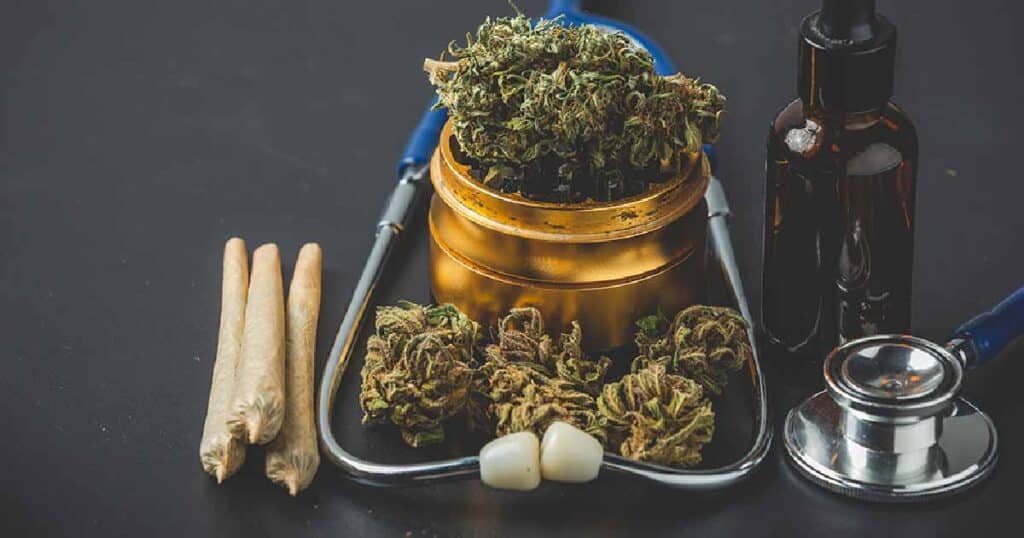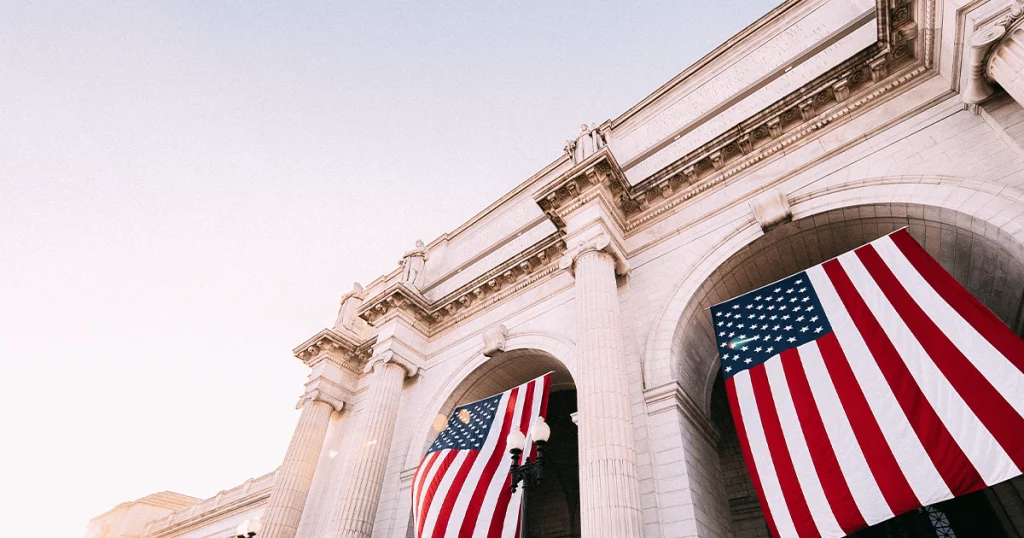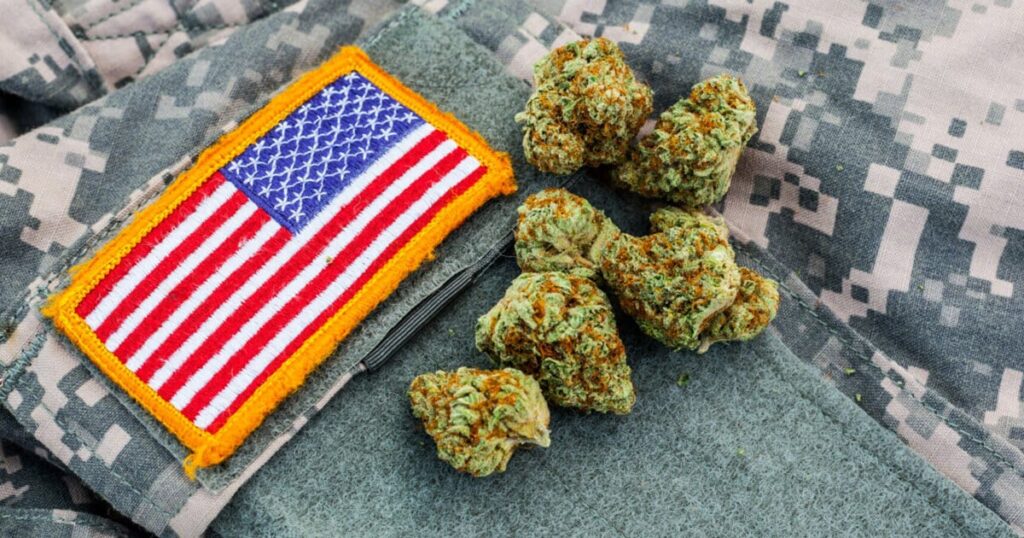The U.S. Congress is considering several bills that would provide legal Federal access to medical marijuana for veterans in states and territories where it is legal.
Led by U.S. Senator Brian Schatz (D-Hawai’i), the Veterans Medical Marijuana Safe Harbor Act has been reintroduced with bipartisan support, proposing allowing doctors at the Department of Veterans Affairs (VA) to prescribe medical cannabis to veterans in states and territories that have established medical marijuana programs.

Veterans have long suffered from physical and mental impairments due to their service. However, many have found relief through medical cannabis as an alternative treatment for pain, anxiety, PTSD, and other conditions.
The Veterans Medical Marijuana Safe Harbor Act, initially introduced by Sen. Schatz, would allow VA doctors to prescribe medical cannabis in states and territories that have established medical marijuana programs. It was first introduced in the 114th Congress but did not pass both chambers of Congress. The bill would also temporarily allow veterans to legally possess and use cannabis under federal law, as recommended by doctors in accordance with state law.
The bill has now been reintroduced with bipartisan support from Senator Jon Tester (D-MT), Chairman of the Senate Committee on Veterans’ Affairs, as well as Republican Senators Steve Daines (R-MT) and Dan Sullivan (R-AK).
Rep. Earl Blumenauer (D-OR) introduced a similar bill with bipartisan cosponsorship in the House of Representatives. Both bills have received significant support from veteran groups such as Iraq and Afghanistan Veterans of America and the American Legion.
“In 41 states and territories and Washington, D.C., doctors and their patients can use medical marijuana to manage pain or treat a wide range of diseases and disorders, including post-traumatic stress disorder—unless those doctors work for the VA and their patients are veterans,” Schatz says in a recent press release. “Our bill will protect veteran patients in these jurisdictions, give VA doctors the option to prescribe medical marijuana to veterans, and shed light on how medical marijuana can help address the nation’s opioid epidemic.”
If passed, they believe this legislation would make it easier for veterans to access medical cannabis as an alternative form of treatment. It would also provide safe harbor protection from federal prosecution or employment ramifications if a veteran uses medical marijuana in accordance with state law.
A change from earlier versions concerns funding for VA marijuana research. Instead of including specific appropriations amounts, the new bill simply authorizes such appropriations that would then need to be later approved by Congress separately. This latest version has another change whereas prior bills would have directed the VA to conduct studies themselves on the effects of medical cannabis use on veterans, the new version says the department would instead only need to support clinical research on the issue.
Washington, D.C., politicians think this legislation could have a significant impact on veterans. It could help improve their health by providing access to an alternative, effective treatment for physical and mental impairments. Studies have shown that medical cannabis can be effective in treating chronic pain, anxiety, PTSD, and other conditions that are common among veterans. By allowing VA doctors to prescribe medical cannabis, veterans will have easier access to this safe and non-addictive form of medication.
These bills could help pave the way for the federal legalization of medical marijuana. Currently, 33 states and several U.S. territories have established medical cannabis programs, but it is still illegal on a federal level. If passed, this legislation would allow VA doctors to prescribe medical cannabis to veterans in states and territories that have established medical cannabis programs.

This could be an essential step toward the full federal legalization of cannabis since it would demonstrate the effectiveness and safety of medical marijuana as an alternative form of treatment for physical and mental impairments suffered by veterans due to their service in the military.
Overall, this legislation has the potential to make a positive difference in the lives of veterans by providing them with access to safer alternative forms of treatment and safe harbor protection from federal prosecution or employment ramifications if they use it. It is time for Congress to pass this critical bill and ensure that our veterans have access to the care they deserve.
We wanted to see if what DC is claiming was actually the case, so we contacted Sean Kiernan, Weed For Warriors Executive Director, for his thoughts on the Veterans Medical Marijuana Safe Harbor Act. Below are his thoughts.
Weed for Warriors Response to “Veterans Medical Marijuana Safe Harbor Act?”
By: Sean Kiernan
The question to ask with all these “cannabis” bills suddenly using the veteran moniker in them is what do they actually do for veterans?
No more so than the “Veterans Medical Marijuana Safe Harbor Act” introduced last week in the Senate by Brian Schatz (D-HI) and in the House of Representatives by Congressional Cannabis Caucus co-chairs Reps. Barbara Lee (D-CA) and David Joyce (R-OH).
Does the bill offer veterans a 5-year Safe Harbor from punishment for state-legal cannabis use as stated? NO!
Let’s be clear, veterans can, have been, and are using cannabis in all states today without recourse in terms of benefits being threatened by the VA or other Federal agencies like Social Security.
Does it push VA Doctors to write recommendations they cannot write today? NO!
Conant v Walters (2002), a legal case decided by the United States Court of Appeals for the Ninth Circuit, affirmed the right of physicians to speak about and recommend medical marijuana. The ruling set a precedent protecting doctors, patients, and state medical marijuana programs in the ten states of the Ninth Circuit. The government appealed the case, but the Supreme Court declined to take the appeal in a brief notice dated October 14, 2003.
Additionally, under TITLE III or the “DOCTOR-PATIENT RELATIONSHIP” section of the Medical Marijuana and Cannabidiol Research Expansion Act signed in December 2022, it states:
“It shall not be a violation of the Controlled Substances Act (21 U.S.C. 801 et seq.) for a
State-licensed physician to discuss the currently known potential harms and benefits of marijuana and marijuana derivatives, including cannabidiol, as a treatment with the patient or the legal guardian of the patient of the physician if the patient is a legal adult or with the legal guardian if the patient is a child”
Does it mandate the VA perform clinical trials leading to a definitive ruling under the FDA regulatory framework on whether whole-plant cannabis has medicinal value? That would be another NO!
The positive going on in Washington DC, and is apparent with this newfound focus on Veterans and cannabis legislation, is the de-radicalization or dilution of privilege within the “cult” controlling the cannabis agenda.
Congressman Earl Blumenauer’s leadership on cannabis, while brave, fostered and promoted an anti-veteran sentiment within Congressional staff and national cannabis advocacy groups. With the addition of mainstream politicians like Jacky Rosen (D-NV), David Joyce (R-OH), and so many more now actively involved in embracing cannabis normalization, that is changing. For that, I am thankful.
Virtue signaling alone doesn’t bring effective policy. Virtue signaling to rally support for a bad policy like Prop 64 in California hurts long term. Virtue signaling to rally broad support and then demanding functional, workable policy to bring a better tomorrow is priceless and the goal.
The best public cannabis policy is a policy that undermines the illicit or black market. That is done with a focus on ACCESS. Without legal access, the illicit market will provide all the illicit ACCESS demanded. That means more crime, more environmental damage, more workers lacking protection from exploitation, and dealers our children have easy access to.
I believe we have a chance to move the needle this year and next. But it’s going to take putting bodies into the street, onto the phone lines, and not settling for the lip service so prevalent in American politics today.
We can say no thank you and ask for a better effort. That is what I am doing.
God Bless the USA!
Sean Kiernan
Enjoyed that first hit? Come chill with us every week at the Friday Sesh for a freshly packed bowl of the week’s best cannabis news!

















